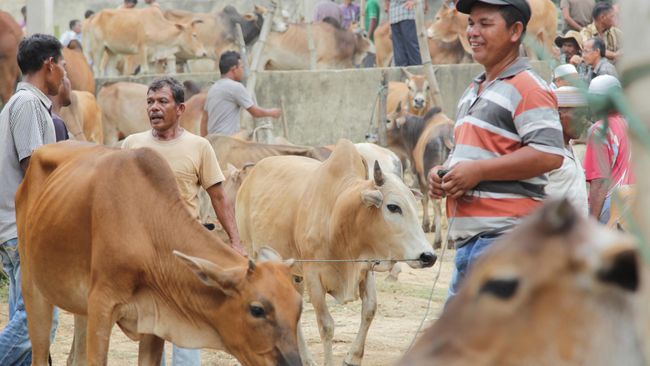Union Farmer Indonesia (SPI) suspected that Oral and Nail Diseases (PMK) which attacks livestock in Indonesia comes from impor beef which has increased in recent times.
SPI General Chair Henry Saragih said Indonesia had actually been free from PMK since the 90s. However, this virus re-emerged along with the increase in beef imports.
“This PMK virus appears allegedly due to increased imports of meat, beef, and other livestock from countries where there are still FMD outbreak zones,” Henry said in an official statement, Thursday (12/5).
Data from the Central Statistics Agency (BPS), said Henry, recorded beef imports reached 273.53 thousand tons, an increase of 22.4 percent in 2021 compared to the previous year which was only 223.42 thousand tons.
“The value of beef imports will become US$948.37 million or around Rp13.64 trillion in 2021. This number is up 35.83 percent from the previous year which was US$698.18 million,” he said.
Meanwhile, Head of the Center for the Study and Application of Agroecology (P3A) SPI Qomarun Najmi said one way to ensure FMD in meat or livestock is to look at the virus strain in the commodity or animal.
“For example, the FMD virus strain in India has been identified later, if the virus strain in Indonesia is the same as India, it means that it came from India. This means that someone must still be responsible for the emergence of FMD,” said Qomarun.
For this reason, he reminded the government to immediately take precautions because this virus is very easily transmitted.
“FMD in cows causes a lack of appetite, fever, chills, rubbing lips, salivating more, and restlessness. Treatment takes about a week or two to recover. If the condition is severe, for example, until the nails fall off, it’s better to just cut them off for consumption,” he explained. Qomarudin.
However, Qomarun said the potential for the FMD virus to spread to humans is very small. Moreover, if anticipated by cooking perfectly cooked meat.
He added that the rapid spread of the FMD virus could still be overcome and cured. In East Java, SPI members use the shells of mimetic sea animals that are burned and mashed as external medicine.
(one by one)
–


